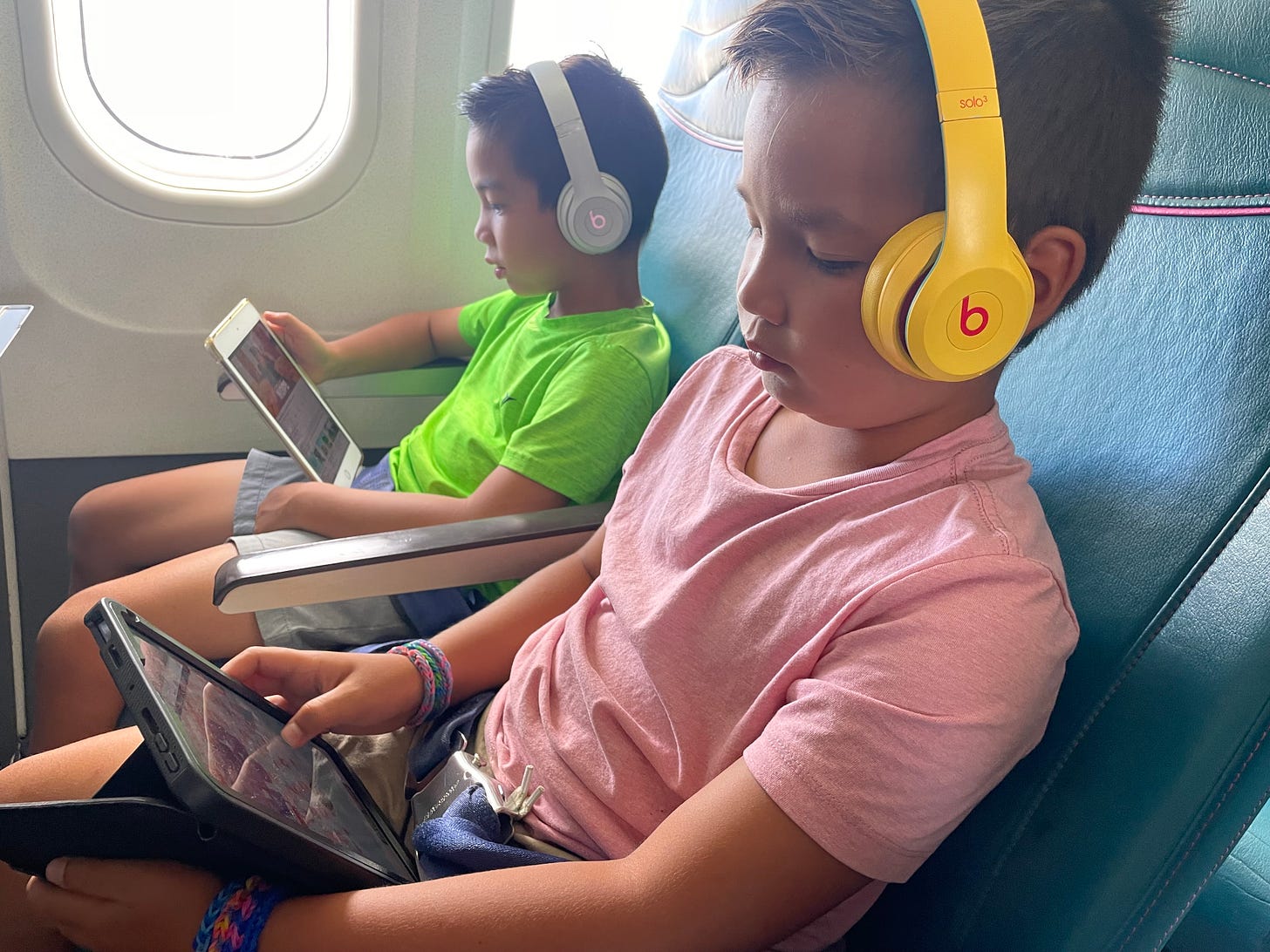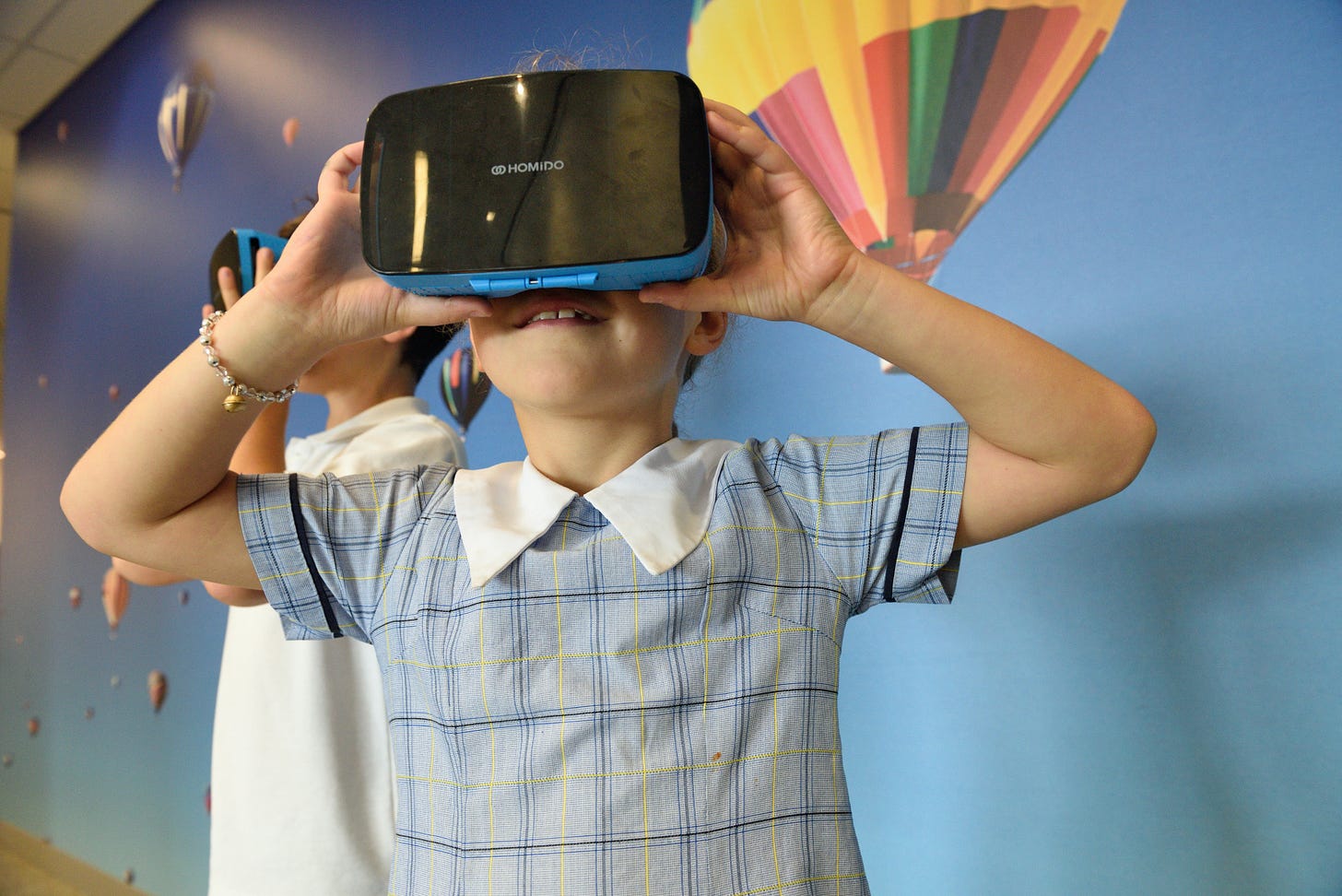Kinder Tech 101: Where to Start?
Helpful resources and guidelines for parents and families to follow.
Hello, kinder friends!
This week, I wanted to provide an overview of some of the organizations that are working at the intersection of kids and tech, and which regularly produce helpful reporting and guidelines for caregivers and families to follow.
One of the goals of this newsletter is to track and summarize updates from these types of organizations, so you don’t have to. But at the same time, if you’re someone who likes to dig a little deeper, I also want to share those resources so you can follow them directly! Here are my favorites and how to follow them on social media or sign up for their newsletters, too.
Family Online Safety Institute (FOSI)
The Family Online Safety Institute (FOSI) is an international non-profit that focuses on research, policy, and best practices for digital parenting and online safety. FOSI provides videos and resources for parents on topics ranging from social media usage to screen time for toddlers, and also brings together industry partners and government leaders to establish polices and best practices.
Website and newsletter sign-up: https://www.fosi.org/
Twitter: https://twitter.com/FOSI
YouTube: https://www.youtube.com/user/FOSI
I’ll be attending FOSI’s 2022 annual conference in November, and look forward to sharing what I learn there with the Kinder Tech community.
World Economic Forum
The World Economic Forum has several initiatives underway focused on protecting children’s rights online, and establishing best practices as the use of artificial intelligence (AI) and metaverse platforms becomes more ubiquitous. Their focus areas include:
Artificial Intelligence: The World Economic Forum maintains a guide for parents on buying and using AI products, as well as a toolkit for companies and product teams to follow to develop trustworthy AI.
Metaverse: The World Economic Forum has developed a short parents’ guide to the metaverse and, more broadly, is engaged on developing best practices for safety-first virtual worlds.
One of the things I really like about these initiatives is that the World Economic Forum is also engaging with children and young adults directly through its Generation AI project. One of their recent publications captures input from digital natives on how AI can be made safer for future generations.
Website: https://www.weforum.org/
LinkedIn: https://www.linkedin.com/company/world-economic-forum/
Twitter: https://twitter.com/wef
UNICEF’s AI for Children Program
UNICEF’s AI for Children Program was one of the first I came across with an emphasis on developing and promoting AI policies and practices that protect children’s rights. Their mission statement calls out the general lack of information on this topic that led me to go searching in the first place:
AI systems are fundamentally changing the world and affecting present and future generations of children. However, little attention is paid to how AI systems will affect children and their rights. This is especially concerning, as children are less able to fully understand the implications of AI technologies and often do not have the opportunities to communicate their opinions, nor the right advocates to support them. Children also often lack the resources to respond to instances of bias or to rectify any misconceptions in their data.
While much of their material is targeted at policy makers, companies, and product developers, they do provide a nice (and not too long) AI guide for parents.
Website: https://www.unicef.org/
Are there other information sources on digital parenting that you like to follow? I would love to hear about them and add them to this list!



